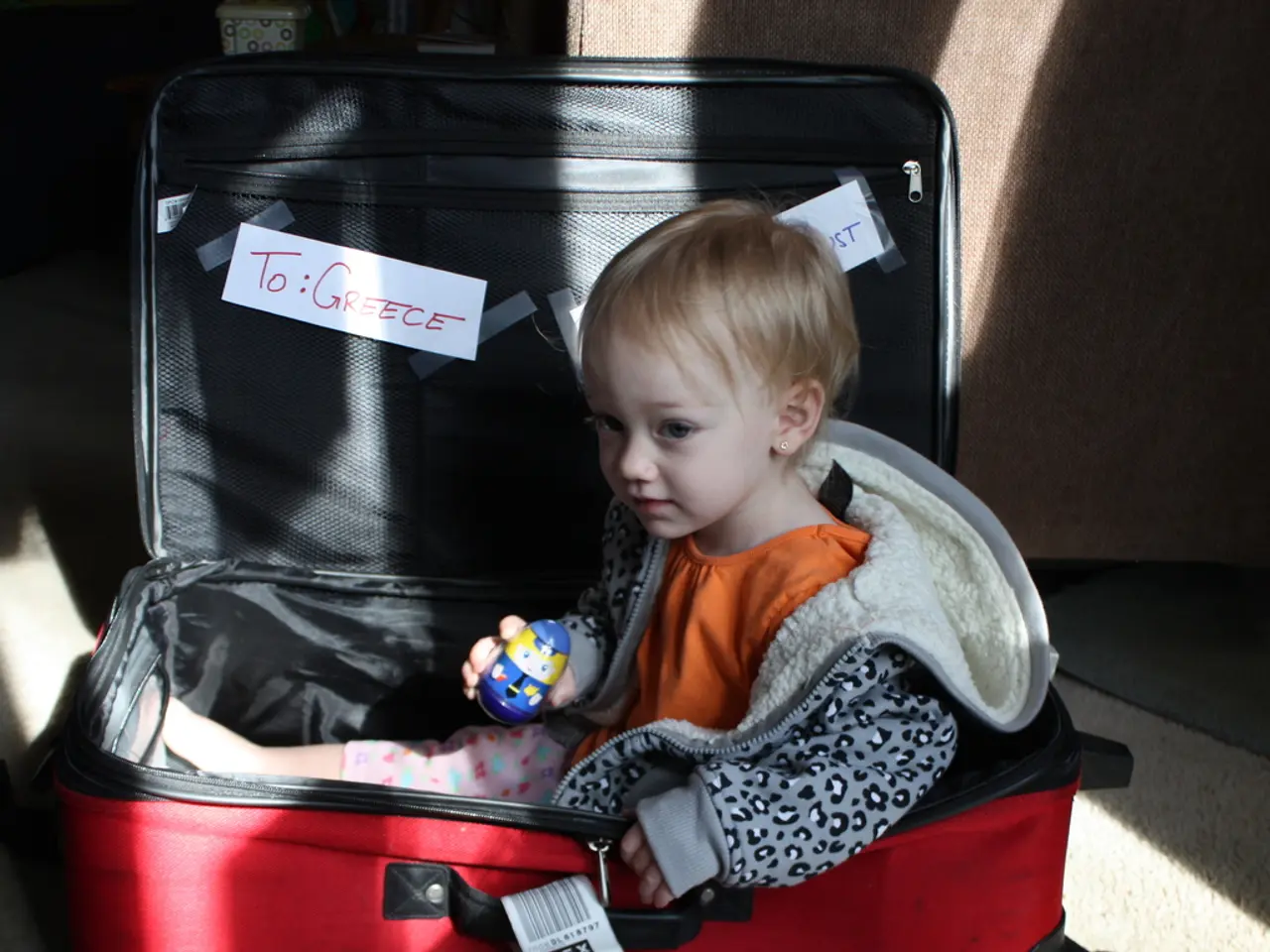Wars of Words: Saxony's State Parliament Debates Intensely Over Budget
Legislative Body Discusses Budget, sparking heated debates within the regional parliament. - Lawmakers gather to discuss the financial plan.
Hey there,
The budget talk in the Saxon state parliament is heating up, with a good old-fashioned verbal smackdown happening on the final budget debate for the years 2025 and 2026. It's a no-holds-barred brawl between factions about the future direction, as the final vote on this budget, scheduled for Thursday, is still on the table. But you know what they say, politics never stops, and they're already looking ahead to the next bucket of money – yeah, that's right, the budget. The current budget is just seen as a "transitional budget," with the real challenges yet to come.
Kretschmer: Bracing for some tough times
Leading the charge is MinPres Michael Kretschmer from the CDU, who's gearing up for some tough times ahead. He takes a look back at the past three years of recession in Germany and warns that the state's revenues from taxes and levies won't cut it when it comes to meeting their obligations – the last 35 years have seen brighter days, just sayin'.
Kretschmer's plan is to help Saxony avoid taking on any new debt in the upcoming budget. But, fast-forward to the preparation for the double budget 2027/2028, and the debate on whether to use the revised Basic Law's new tool will rear its head again. This tool lets states take on debt like the feds, up to 0.35 percent of the GDP.
"If Berlin gets its act together and plots a course for growth faster, the problem will be smaller," said Kretschmer. But it looks like tight times lie ahead for Saxony, as they're projected to be missing around two billion euros from their budget. So now more than ever, it's time to set some priorities.
Kretschmer also took a moment to give a shout-out to the Greens and Left, praising their role in forming a "responsibility community." This is crucial for the CDU-SPD coalition, which lacks ten votes in parliament to secure a majority. With the Greens and Left together, they can muster up 13 votes and have promised 12 in support of the budget.
AfD: The End to a Solid Budget Policy?
Representing the AfD, faction leader Jörg Urban wasn't so thankful, and he blasted the double budget as the beginning of the end of solid Saxon budget policy. He and his fellow conspirators have submitted a balanced budget proposal, which they aim to achieve through cuts in personnel, asylum, integration, climate projects, left-wing associations, and universities (just keeping those tuition prices low, I guess).
Urban summed it up by declaring, "We're coming for you, government. Not a threat, just a promise."
CDU shot back with Christian Hartmann, who said, "If you're gonna hunt, be sure the bear doesn't bite back." He made it clear that major consolidation efforts are needed if they want to create a future budget, which may require personnel reductions. Until then, they have the time to prepare necessary reforms, with the hope that they'll only take on loans when future generations stand to benefit from the investments.
Bundestag Left: A Raw Assessment of the Budget
Sabine Zimmermann, the chair of the BSW (Left Party) in the Bundestag, didn't hold back her critique of the budget, simply calling it "devoid of renewal or a fresh start." In her opinion, it bears no resemblance to the real-life struggles and sentiments of the folks in Germany and completely ignores the concerns of pensioners, struggling municipalities, and many more. She announced that BSW will reject the budget.
On the other hand, SPD faction leader Henning Homann saw the budget as a beacon of stability and perspective. He commended the coalition factions for their ability to act and the strength of parliamentary democracy, while also teasing the possibility of a new political culture.
Greens: A Sign of Maturity or Greasing the Wheels?
The Greens and Left Party weighed in with their thoughts, highlighting the planned reductions in areas like social services, daycare, culture, and environmental protection that they managed to push back. Franziska Schubert, the Green faction leader, described the agreement as a sign of "democratic maturity." In her assessment, the opposition must choose when to be a spiky pain in the butt and when to smooth things over for the people.
According to Susanne Schaper, the Left Party faction leader, the budget agreement focused on "saving what we can." She promised to keep fighting against austerity policies as the opposition and advocated for higher investments in the social state, education, infrastructure, and future industries. She also called for wealthy individuals and large corporations to pay their fair share of taxes.
Independent MP Berger: Rejecting the Budget and the Process Behind It**
Matthias Berger, an independent MP representing the Free Voters, fired back against both the budget and the process by which it came to fruition. He argued that the red-red-green-black conglomeration that passed the budget would determine the rest of the legislative period and effectively render any necessary reforms impossible for our great nation.
Budget, Parliament, Budget Negotiations, Michael Kretschmer, CDU, Budget Policy, Jörg Urban, Future, SPD, AfD, Dresden, Dual Budget, Recession, Germany, Sabine Zimmermann, Berlin
Enrichment Data:
Overall:
This budget debate in the Saxon state parliament marks a significant milestone, as they approve a double budget for 25 billion euros over 2025 and 2026. This budget is a testament to the short-term financial planning of Saxony, characterized by a delicate political environment within the state and at the federal level.
Implications for Future Budgets in Saxony:
- The adoption of this double budget offers a stable financial outlook for Saxony in the short term.
- The use of a two-year budget allows for more flexible medium-term planning to address ongoing fiscal needs.
- The budget aims to offset initial financial shortfalls, but it should be noted that this fiscal approach is cautious in the face of economic uncertainties.
- Future budget negotiations in Saxony might remain complex due to the minority nature of the coalition that approved the budget, necessitating continual diplomacy.
Role of the Federal Government in Saxony's Finances:
- The political landscape at the federal level, marked by the formation of the new Merz-led grand coalition, has already faced criticism over broken election promises, such as the failure to cut electricity taxes in the 2025/26 federal budget.
- The federal decisions on taxation, transfers, and economic policy affect Saxony's financial environment, shaping the resources available to the state.
- The political instability and policy shifts at the federal level signal that Saxony's financial planning needs to remain flexible to adapt to changes in fiscal policies and priorities.
- The debated double budget of €25 billion in Saxony for the years 2025 and 2026 encompasses the free movement of workers, as it includes provisions for several sectors such as personnel, asylum, integration, climate projects, left-wing associations, universities, and social services like daycare and culture.
- The future budget negotiations in Saxony will likely be influenced by policy-and-legislation decisions at both the state and federal levels, as well as by factors such as the economy, business interests, and general news events.
- Financing for the budget is a crucial aspect of politics, and the decisions made now will have implications for the freedom of workers, as potentially reduced funding for social services, daycare, culture, and environmental protection could impact employment opportunities and living standards.




